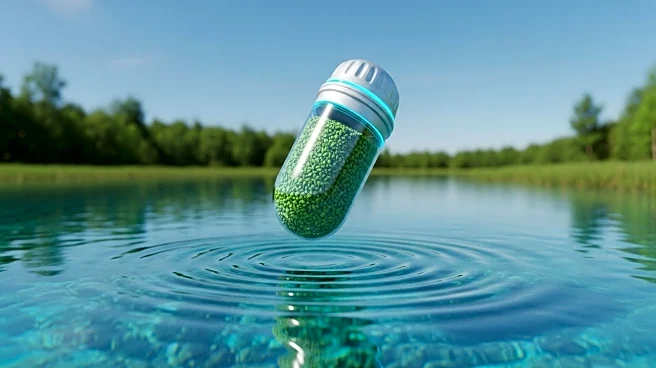What is the story about?
What's Happening?
Dr. Santanu Bakshi at Iowa State University is developing a slow-release fertilizer using biochar to address high nitrate levels in Iowa's water sources. Agriculture in Iowa contributes significantly to nitrate pollution, with 80% of nitrates in central Iowa waterways originating from farms. The Environmental Protection Agency's standard for nitrate concentration in water is 10 mg/L, but studies suggest even lower levels can pose health risks, including cancer. The slow-release fertilizer aims to improve water quality by gradually releasing nitrogen to crops, reducing agricultural runoff and increasing crop productivity.
Why It's Important?
The development of slow-release fertilizers is crucial for improving water quality and public health in agricultural regions like Iowa. High nitrate levels in drinking water are linked to serious health issues, including cancer. By reducing nitrate runoff, the new fertilizer could help protect water sources and reduce health risks for residents. Additionally, the innovation supports sustainable agricultural practices, potentially enhancing crop yields and efficiency. This approach aligns with broader environmental goals and could serve as a model for other regions facing similar challenges.
What's Next?
The implementation of slow-release fertilizers in Iowa could lead to significant improvements in water quality and agricultural efficiency. Researchers and policymakers may focus on promoting the adoption of this technology among farmers. Further studies and trials could refine the fertilizer's effectiveness and explore its application in different crops and regions. Stakeholders, including environmental groups and health organizations, may advocate for policies supporting sustainable agricultural practices and water conservation efforts.














